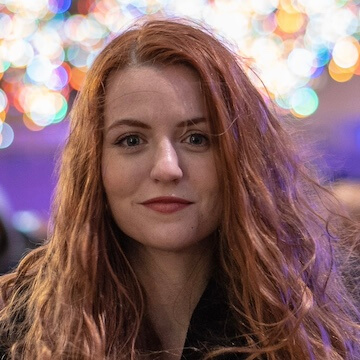Have you ever wondered what camera settings you should choose to photograph a wedding ceremony? Each wedding venue presents unique challenges with different lighting, shadows, and backgrounds. This variability can make setting your camera’s exposure, shutter speed, and other settings a challenge.
As a wedding photographer, you understand that your camera is merely a tool; your skills in using it bring the photos to life. That’s why learning how to set, adjust, and manipulate your camera settings for weddings is essential.
In this guide, we will share the best camera settings for wedding photography and provide practical tips to help you capture stunning images regardless of the venue conditions. The first step is to decide which camera you’ll be working with. Once you’ve selected the right camera, mastering the settings for different environments will get easier with practice.
Overview: Wedding Photography Settings
Without further ado, let’s take a look at the best camera settings for wedding photography!
Using your camera’s Automatic Mode might be convenient, but it won’t yield the best image results for wedding photography. To capture truly amazing shots, you should use Manual Mode, which allows you to set each of the camera’s settings independently. Professional photographers rely on Manual Mode to have complete control over their camera settings.

Your camera likely offers several Manual Mode options, including Shutter Priority Mode, Aperture Priority Mode, and a fully manual mode. Understanding how to use these modes effectively is the key to improving your wedding photography.
Shutter Priority Mode
Shutter Priority Mode, as its name suggests, prioritizes the shutter speed you set. This means your camera will automatically adjust the aperture to maintain your selected shutter speed. When shooting weddings, you want to consider the movement in your scene when setting the shutter speed.
For example, in posed portraits of the wedding party before the ceremony, you can use a slower shutter speed. Since the subjects remain still, a slower shutter speed of 1/60th of a second or slightly faster will work well. Just make sure not to select a slower shutter speed than 1/60th of a second to avoid motion blur from pressing the shutter button.
On the other hand, at the reception, you’ll want to drastically increase your shutter speed. A fast shutter speed around 1/500th of a second will be ensure you capture freeze frames of all the dynamic action, such as dancing, laughing, and other joyful moments.
Aperture Priority Mode
Aperture Priority Mode allows you to set a specific aperture for your photo while the camera automatically selects the appropriate shutter speed to achieve a perfect exposure.
For wedding couple portraits, you’ll need an aperture between f/1.4 and f/2.8 to achieve a beautiful, blurred background and sharp subject focus. When photographing the wedding venue and wide shots of the guests, consider using a narrower aperture to keep more elements in focus.
Aperture Priority Mode can be challenging in wedding photography because capturing quick actions like dancing requires careful shutter speed management.

In low-light conditions, selecting a smaller aperture will force the camera to decrease the shutter speed to allow more light in, potentially causing motion blur and camera shake if shooting without a tripod. Use this mode judiciously, and be prepared to switch to manual settings to avoid such issues.
Fully Manual Mode
Both Shutter Priority Mode and Aperture Priority Mode have their downfalls, which is why it’s best to shoot your wedding photography in Manual Mode. Manual Mode allows you to set each camera parameter—shutter speed, aperture, and ISO—independently, leaving nothing to chance.
To effectively shoot in Manual Mode, you need to understand the relationship between these settings. It also demands a level of comfort with your camera and your other wedding photography equipment.
If you’re not yet familiar with the relationship between shutter speed, aperture, and ISO, or how to adjust each on your camera, take the time to learn these basics before shooting your first wedding in Manual Mode. Take the time to practice extensively to ensure your initial wedding photo shoot using Manual Mode goes smoothly.
Depth of Field
Your camera’s aperture affects not only the exposure but also the depth of field in your final image. Depth of field refers to the distance between the nearest and farthest objects in your photo that the camera is able to capture in crisp focus.
A shallow depth of field results in a clear subject with a beautifully blurred background, which can be particularly effective in wedding photography. For example, the shallow depth of field in the photo below draws attention to the dancing couple because only the closest objects are in focus while everything else in the background is blurred.

In wedding photography, you can use depth of field to emphasize the couple and create striking images for their special day. Wedding photographers often include shots like the one above in a catalogue for the clients’ wedding album.
While achieving a shallow depth of field can be tricky, you can learn the technique by adjusting basic camera settings.
Using Flash
Most cameras have a basic, built-in flash that can help brighten your wedding photos. However, using flash effectively isn’t always as easy as it seems. But it’s necessary to learn how to use flash properly if you want to capture great wedding photos.
Always think about your photography lighting before and during a shoot. Maximize natural light whenever possible, especially for outdoor shots, as it often provides better results than flash or flood lights.
For indoor wedding photography, combining your camera flash with the venue lighting can yield exceptional results, but it isn’t the only option. Check out our comprehensive guide on how to light wedding photography without a flash for more creative lighting techniques.
Choosing the Right Lens for Wedding Photography
Believe it or not, choosing the right camera lens is just as crucial as selecting the correct camera settings. The right lens can greatly enhance your ability to capture the ideal image, so take your time selecting the appropriate lens for wedding photography.

For beginners on a budget, read our guide on shooting a wedding with a single lens for practical insights and tips. Otherwise, here are our recommendations for the best lenses for wedding photography:
Best Lenses for Wedding Photography
By investing in these lenses, you’ll have a versatile kit capable of capturing the full range of moments and emotions during a wedding event.
Prime Lenses
- 50mm f/1.8 or f/1.4: Known for its versatility, this lens is excellent for portraits and low-light conditions. Its wide aperture allows for beautiful bokeh (soft out-of-focus background), making it popular for wedding photography.
- 85mm f/1.8 or f/1.4: Ideal for portrait photography, this lens offers a flattering perspective for close-up shots of the couple and individual portraits. The wide aperture also excels in creating a shallow depth of field.
Zoom Lenses
- 24-70mm f/2.8: This lens is a workhorse for wedding photographers due to its versatility. It covers wide-angle shots for group photos and can zoom in for close-ups, making it invaluable for capturing various scenes throughout the day.
- 70-200mm f/2.8: Perfect for capturing candid moments from a distance, without intruding. This lens is also great for portraiture, allowing you to isolate subjects with a narrow depth of field.
Wide-Angle Lenses
- 16-35mm f/2.8: This lens is excellent for capturing wide shots of the venue, large groups, and expansive scenes. It also performs well in tight indoor spaces where you need to fit many elements into the frame.
Lenses for Indoor and Low-Light Venues
When shooting indoor weddings or in low-light conditions, it’s essential to choose lenses with wide apertures (smaller f-number) to allow more light to reach the camera sensor. Here are our top recommendations for these scenarios:
- 35mm f/1.4 or f/1.8: This lens is fantastic for indoor wedding photography. It offers a slightly wider perspective without too much distortion, making it perfect for environmental portraits and capturing the ambiance of the venue.
- 50mm f/1.2: For extremely low-light conditions, this lens excels. Its ultra-wide aperture allows for shooting in dim settings while maintaining sharpness and creating beautiful bokeh.
Cheat Sheet: Wedding Photography Camera Settings
Consider these general guidelines to optimize your camera settings and capture gorgeous wedding photos:
- Adjust aperture, shutter speed, and ISO for different scenarios.
- Use Aperture Priority with Auto ISO for changing environments.
- Experiment with wide apertures for creative effects.
- Adapt to low-light situations with appropriate techniques.
Recommended Settings for Different Scenarios
Portraits
When capturing portraits at a wedding, you want to ensure that your subjects are sharp, and the background is beautifully blurred to make them stand out. Here are some recommended settings:
- Aperture: f/1.8 to f/2.8
- Shutter Speed: 1/200th sec or faster
- ISO: 100-400 (adjust depending on the lighting conditions)
- Lens: 50mm or 85mm prime lens
These settings help you achieve a shallow depth of field, resulting in a pleasing blur effect while keeping your subjects in focus
Ceremony
During the ceremony, you may need to adapt to varying lighting conditions and ensure that you capture crucial moments without disturbing the event.
- Aperture: f/4 to f/5.6
- Shutter Speed: 1/100th sec or faster
- ISO: 400-1600 (adjust based on lighting)
- Lens: 24-70mm zoom lens
Using these settings, you can capture both the couple and the ambiance of the venue without sacrificing image quality.
Reception/Dancing
Reception and dancing shots often occur in low-light conditions and involve a lot of movement. To capture these moments clearly:
- Aperture: f/2.8
- Shutter Speed: 1/250th sec or faster
- ISO: 1600-3200 (adjust based on lighting)
- Lens: 24-70mm or 70-200mm zoom lens
These settings allow you to freeze the action and get sharp images even in challenging light conditions.
Using Aperture Priority with Auto ISO
Aperture Priority Mode with Auto ISO can be an excellent alternative to full manual mode, especially in dynamic wedding environments where lighting conditions change frequently.
- Aperture Setting: Choose based on the creative effect desired (e.g., f/1.8 for portraits, f/5.6 for group shots)
- Auto ISO Setting: Enable Auto ISO with a max limit (e.g., ISO 3200) to avoid excessive noise.
- Shutter Speed Minimum: Set a minimum shutter speed (e.g., 1/125th sec) to reduce motion blur.
This mode allows you to focus on the composition and depth of field while the camera manages the ISO and ensures proper exposure.
Creative Effects with Wide Apertures
Using very wide apertures (under f/2.0) can create stunning creative effects, especially in wedding photography. Here are some tips for achieving such effects:
- Bokeh: Wide apertures create a beautiful bokeh effect, isolating the subject against a smooth, blurry background. Ideal for portraits and detail shots.
- Low Light Capability: A wide aperture allows more light, making it easier to shoot in low-light conditions without raising the ISO too high, maintaining image quality.
- Shallow Depth of Field: Perfect for drawing attention to particular elements, like the couple’s hands, the wedding rings, or intricate details in the wedding dress.
Recommended lenses for achieving these effects include the 50mm f/1.2, 85mm f/1.4, and 35mm f/1.4.
Tips for Low-Light Conditions
Weddings often have segments in low-light conditions, like indoor ceremonies or evening receptions. Here are some tips to handle such situations:
- Raise ISO: Do not hesitate to increase your ISO. Modern cameras handle high ISO settings better. Aim for ISO 1600-3200, depending on your camera’s noise performance.
- Open Aperture: Use a wide aperture (e.g., f/1.8) to allow more light into the camera.
- Flash: Use an external flash with a diffuser to avoid harsh shadows and maintain a natural look.
- Stabilization: Use lenses with image stabilization or a tripod/monopod to reduce camera shake.
- Post-Processing: Utilize noise reduction techniques in post-processing to clean up any graininess from high ISO settings.
With these tips, you’ll be prepared to capture clear and beautiful images, even in dim lighting conditions.
We hope this guide helped you learn the best camera settings for wedding photography! For more tips on framing your wedding photos, read our guide on how the rule of thirds works in photography.
Not using Envira Gallery? Get started today!
Want to learn more about the best camera settings? Check out our other guides:
- The Best Camera Settings for Portrait Photography
- The Best Camera Settings for Landscape Photography
- The Best Camera Settings for Infant Photography
- A Beginner’s Guide To Avoiding Common Camera Settings Mistakes
Don’t forget to check out our blog and follow us on X (Twitter) for the best photography tips, resources, and WordPress tutorials.

















Thanks for the information.
Can someone recommend RANGES? Thanks xxx